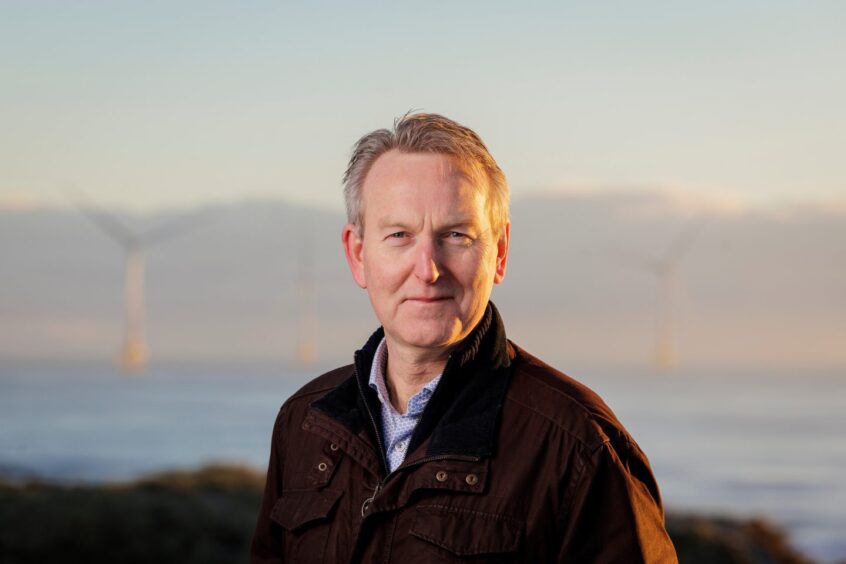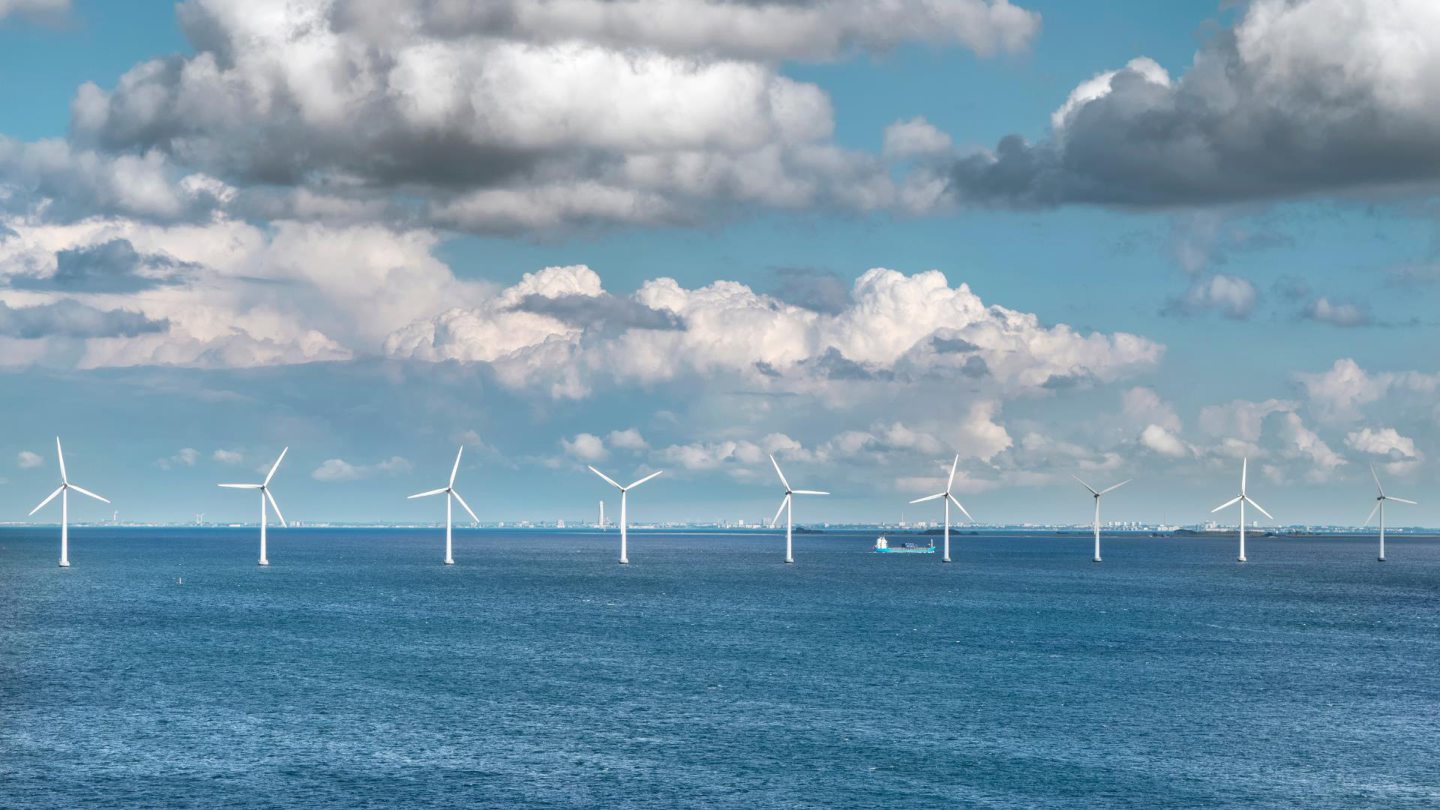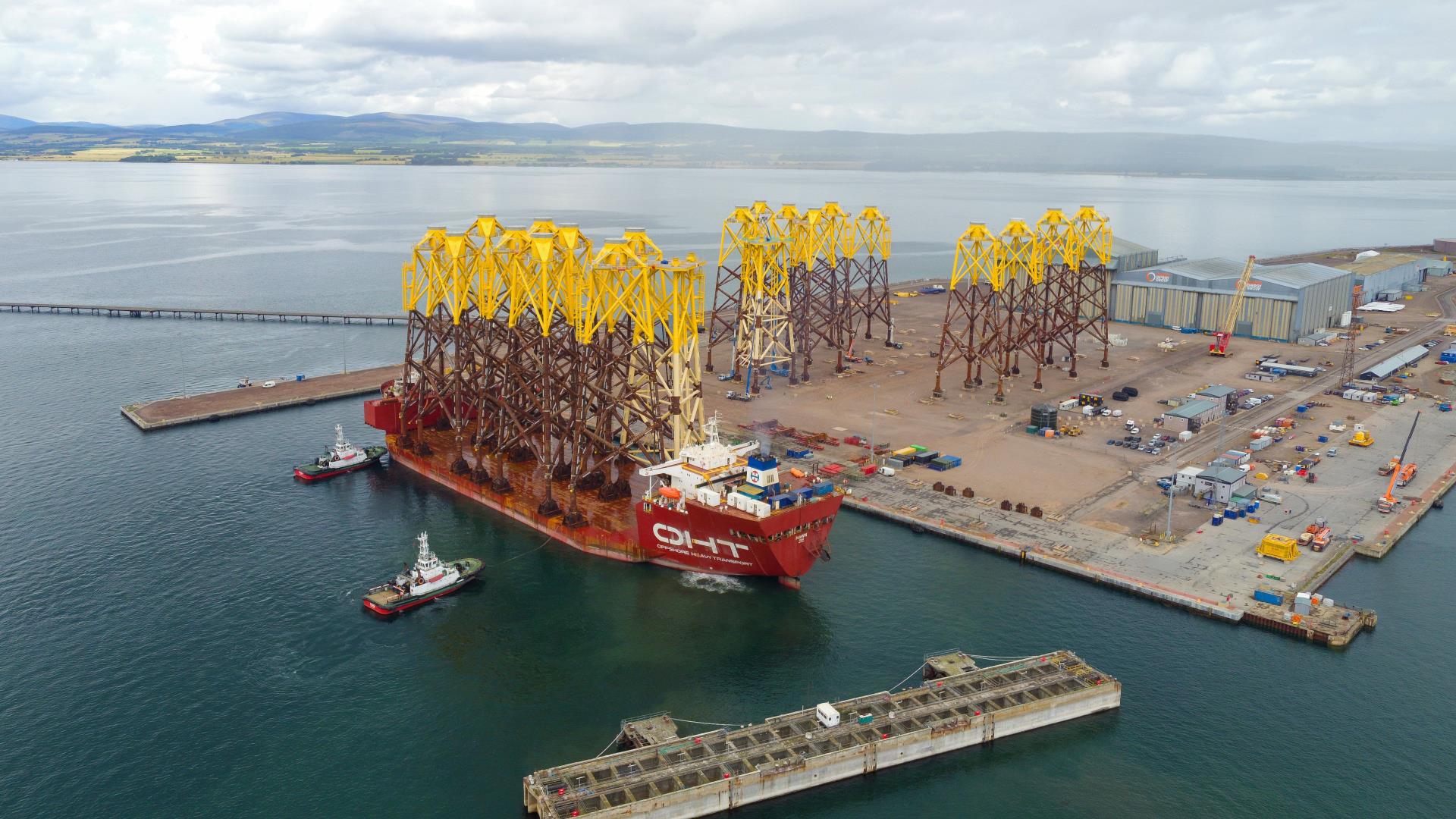
The UK’s energy sector is at a tipping point and risks an unprecedented exodus of skills and investment without a clear and aligned government strategy on the energy transition and greater industry collaboration, an industry leader has warned.
David Clark, chief executive officer of global engineering and technical consultancy Vysus Group, says his company – which employs around 350 people with a permanent presence in 15 countries – has seen activity levels move away from the UK North Sea.
Mr Clark said more favourable opportunities are being seen elsewhere including in the Middle East, Europe, Scandinavia and the Americas, as renewables and transition energy projects accelerate ahead of the UK.
These regions are moving ahead in large part due to the uncertainty over domestic energy policy and a failure to capitalise on Aberdeen and the wider UK’s potential to become a world-leader in the energy transition, he added.
Vysus Group shifts focus to renewables
The Aberdeenshire-headquartered firm, which employs 91 people in the UK and provides technical and regulatory consultancy and technology solutions across the energy, complex process, grid and infrastructure sectors, has been going through its own transition since its launch three years ago following its carve-out from Lloyd’s Register.
A company-wide restructure, the divestment of non-core businesses, and an increased focus on the energy transition have seen Vysus reduce its reliance on oil and gas by gaining a greater marketing share across the renewables, low carbon, grid and complex process industries.
The company leverages its deep domain and risk expertise to help companies navigate the increasingly complex, integrated energy landscape to minimise risk and optimise performance across the asset lifecycle.
While the UK, and Aberdeen in particular, is considered to be a hub of engineering expertise, Mr Clark, who is also a non-executive director of the Energy Industries Council (EIC), says short-term government thinking and lack of a longer-term, integrated energy/industrial strategy are hindering the UK’s competitiveness on the global energy stage and is putting its status at risk.
“As a company, we are less active in the UK in part because of the state of our domestic energy market and the pace with which new energy projects are moving ahead coupled with the uncertain market for traditional oil and gas players,” he said.
“Four or five years ago the UK, and Aberdeen and the north east of Scotland in particular, had the opportunity to again lead the world in providing the engineering expertise and innovation needed to deliver the next generation of integrated, low-carbon energy solutions.
“Unfortunately, stakeholder misalignment and a lack of a fully integrated, long-term strategy mean that the window to achieve this is rapidly closing with people, companies, expertise and investment going to other regions.”
Long-term strategy needed
Mr Clark said more needed to be done to realise the potential for the UK and the north east of Scotland.
“To unlock this opportunity, before it is really too late, we need to bring together key stakeholders from across the integrated energy sector – within government, at both national and devolved levels, the regulatory bodies, and from across the private sector, operators, developers and the supply chain,” he said.
“It comes down to joined up thinking across the stakeholders to help give direction and unlock the potential.
“If we can do this, we can establish a long-term strategy and create the environment that will attract the required investment to unlock the potential. The opportunity is there but it won’t be there forever, and we need to make this happen to deliver long-term stability. It comes down to joined up thinking across all stakeholders.
“We operate in a global market and as such every investment needs to stack up and compete internationally. Sadly we are some ways behind here in the UK where short-term political positioning, across all sides, has created an environment where the UK is no longer seen as an investment region of choice or certainty.”
Energy infrastructure delays
Mr Clark says this lack of alignment has led to delays in establishing the required infrastructure to enable a smooth transition.
“In the UK, designing the energy grid itself is a major hurdle. There is a complete misalignment between developers, operators, stakeholders, and planners,” he said.
“The energy world is becoming ever more highly integrated. For example, we see the electrification of oil and gas, using renewables to power platforms and the integration of hydrogen for example.
“Yet, our industry is largely continuing to operate as it has done – in silos. It’s about bringing everyone together and consolidating. The last thing we need is more organisations and more bodies being set up without existing ones talking to each other.”
Vysus positions itself for further growth
Mr Clark’s warning about the UK’s precarious position on the energy industry’s world stage comes as Vysus Group positions itself for further international and sectoral growth.
Since the company was established in 2020, the focus has been on supporting the energy transition and helping other complex process industries to reduce risk, optimise operational performance, and reduce their carbon emissions, while also continuing to support oil and gas clients.
Under Mr Clark’s leadership the company has moved from being almost entirely reliant on the upstream oil and gas industry to it now accounting for around 40% of revenue with 60% coming from other streams including renewables, power, and processing industries across its consultancy business, whilst it continues to grow and expand its global footprint and capability.
As Mr Clark looks ahead to what the next three years hold for Vysus, the company will continue with its current strategy to provide the technical insights its clients require to solve complex problems as well as collaborating with partners to combine the latest digital technologies with its deep engineering expertise.
One example is its partnership with enterprise data sharing platform, Siccar.
The collaboration has developed the Energy Transition Databox solution, which uses Siccar’s secure, blockchain technology and Vysus’ technical engineering experience, and integrates with operational and supply chain systems to allow organisations to easily monitor, manage and verifiably audit their ESG carbon emissions.
Challenges remain for UK
Mr Clark said the UK continues to have a “fantastic level of innovation and engineering and delivery expertise with world-class research and development work ongoing and some great collaboration with universities and technology development centres”.
“While there were encouraging signs in the recent Autumn Statement, the UK’s ability to convert the technical innovation and development into real products and projects remains a challenge,” he said.
“With COP28 underway, and many 2030 near-term milestones rapidly approaching, governments and the private sector need to radically increase the pace of change to get anywhere close to these critical targets.”
Mr Clark said Aberdeen and the UK remain a key focus for Vysus, and the company will continue to invest in its people and skills.
“However, we have already seen many companies relocate and invest in projects out with the UK,” he said.
“That will only increase without urgent action and it would be a devastating blow and an opportunity missed if the stakeholders involved don’t come together soon to forge collective strategic thinking and a clear plan of exactly what is required to maximise our position within the global energy transition.”
Recommended for you

 © Supplied by Michal Wachucik /Equ
© Supplied by Michal Wachucik /Equ © Supplied by Canva
© Supplied by Canva © Shutterstock
© Shutterstock © Global Energy Group
© Global Energy Group